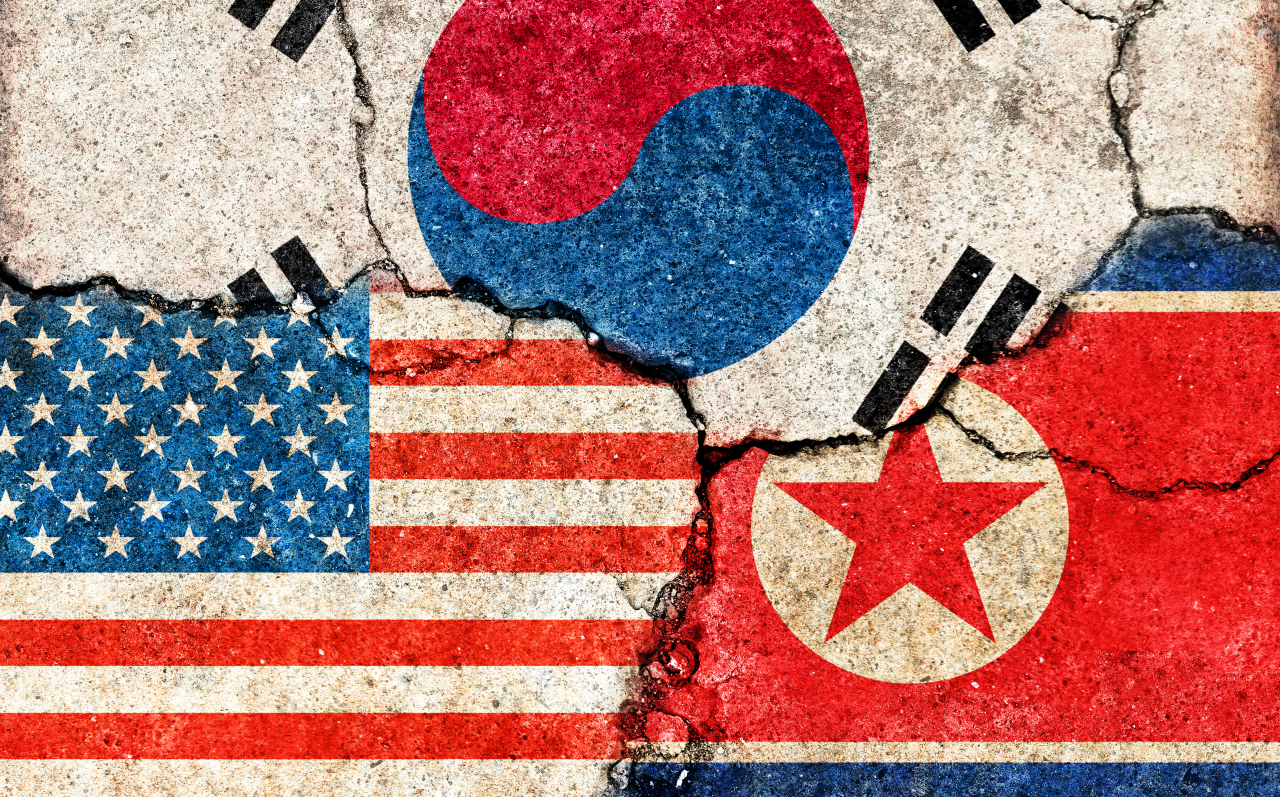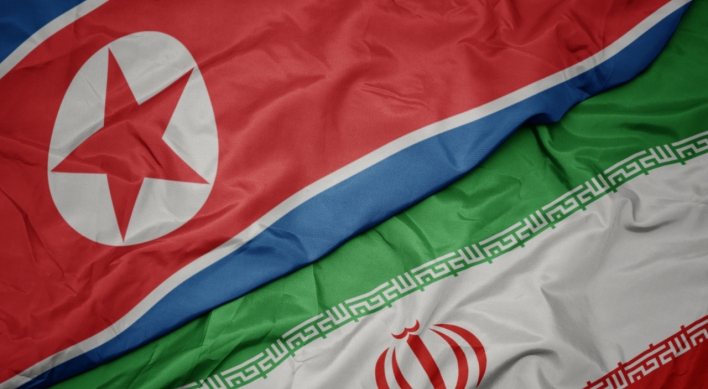S. Korea, US unlikely to spar over anti-N. Korea leaflets: report
By Choi Si-youngPublished : Dec. 22, 2020 - 15:03

Former US officials familiar with inter-Korean affairs said Monday that the incoming US administration is not likely to fight hard with South Korea on its ban that criminalizes sending propaganda leaflets into North Korea.
A week ago, the parliament passed a bill making cross-border leafleting a felony punishable by up to three years in jail or by a fine as high as $27,000 from early next year. President Moon’s ruling Democratic Party of Korea, which pushed through the bill, has been accused of undermining the freedom of expression.
“I think there’s a lot of things that the administration needs to do about North Korea and organize itself for North Korea. I don’t think this is going to be a major source of contention,” Christopher Hill, former top US nuclear negotiator with North Korea, told Voice of America.
Washington would not let disagreement with Seoul on the matter dominate the agenda, and Seoul and Washington would initially invest themselves in reviving negotiations to curb Pyongyang’s nuclear weapons programs, Hill said.
The issue surfaced before US President-elect Joe Biden is to take the oath of office in January, Hill added.
Robert Gallucci, who served as the chief US negotiator for the North Korean nuclear crisis in 1994, dismissed the idea altogether that the contentious ban could be a sticking point between Seoul and Washington, calling the ban a “domestic issue” and “not America’s business.”
Gallucci disagreed that the ban has anything to do with freedom of expression.
“This is really not a matter of a free expression. Nobody’s saying that South Koreans can’t publish what they want to publish. It’s a question of whether sending leaflets across the border is the right thing to do and that has to do with relations with North Korea and war and peace,” he told VOA.
But, Joseph Detrani, former special envoy for six-party talks with North Korea, said the Biden administration would be vocal because the issue involves rights.
“I believe the incoming administration will be equally outspoken about this issue. It’s a core value,” he told VOA, adding any US administration would be interested in speaking out when it comes to rights.
Scott Snyder, a senior fellow at Council on Foreign Relations, told VOA the Biden administration would have to deal with the issue one way or the other because of a potentially unfavorable US Congress.
Two weeks ago, Rep. Chris Smith, co-chair of the bipartisan Tom Lantos Human Rights Commission in the House, warned he would open a hearing to look into Seoul’s failure to uphold civil and political rights if the bill passed.
“So to the extent that the congressional views of dialogue with North Korea hardened as a result of actions taken by South Korea to muzzle protest against North Korea, it will be harder for the Biden administration to pursue engagement with North Korea,” Snyder said.
The South Korean government has made it clear that it will not make any change to the law, with the Unification Ministry openly defending it. The ministry handles inter-Korean affairs.
The ministry, acknowledging freedom of expression as constitutional rights, said the safety of residents near the inter-Korean border, who are often the target of North Korean retaliation over leafleting, is a priority overriding that concern.
By Choi Si-young (siyoungchoi@heraldcorp.com)
A week ago, the parliament passed a bill making cross-border leafleting a felony punishable by up to three years in jail or by a fine as high as $27,000 from early next year. President Moon’s ruling Democratic Party of Korea, which pushed through the bill, has been accused of undermining the freedom of expression.
“I think there’s a lot of things that the administration needs to do about North Korea and organize itself for North Korea. I don’t think this is going to be a major source of contention,” Christopher Hill, former top US nuclear negotiator with North Korea, told Voice of America.
Washington would not let disagreement with Seoul on the matter dominate the agenda, and Seoul and Washington would initially invest themselves in reviving negotiations to curb Pyongyang’s nuclear weapons programs, Hill said.
The issue surfaced before US President-elect Joe Biden is to take the oath of office in January, Hill added.
Robert Gallucci, who served as the chief US negotiator for the North Korean nuclear crisis in 1994, dismissed the idea altogether that the contentious ban could be a sticking point between Seoul and Washington, calling the ban a “domestic issue” and “not America’s business.”
Gallucci disagreed that the ban has anything to do with freedom of expression.
“This is really not a matter of a free expression. Nobody’s saying that South Koreans can’t publish what they want to publish. It’s a question of whether sending leaflets across the border is the right thing to do and that has to do with relations with North Korea and war and peace,” he told VOA.
But, Joseph Detrani, former special envoy for six-party talks with North Korea, said the Biden administration would be vocal because the issue involves rights.
“I believe the incoming administration will be equally outspoken about this issue. It’s a core value,” he told VOA, adding any US administration would be interested in speaking out when it comes to rights.
Scott Snyder, a senior fellow at Council on Foreign Relations, told VOA the Biden administration would have to deal with the issue one way or the other because of a potentially unfavorable US Congress.
Two weeks ago, Rep. Chris Smith, co-chair of the bipartisan Tom Lantos Human Rights Commission in the House, warned he would open a hearing to look into Seoul’s failure to uphold civil and political rights if the bill passed.
“So to the extent that the congressional views of dialogue with North Korea hardened as a result of actions taken by South Korea to muzzle protest against North Korea, it will be harder for the Biden administration to pursue engagement with North Korea,” Snyder said.
The South Korean government has made it clear that it will not make any change to the law, with the Unification Ministry openly defending it. The ministry handles inter-Korean affairs.
The ministry, acknowledging freedom of expression as constitutional rights, said the safety of residents near the inter-Korean border, who are often the target of North Korean retaliation over leafleting, is a priority overriding that concern.
By Choi Si-young (siyoungchoi@heraldcorp.com)



![[Exclusive] Korean military set to ban iPhones over 'security' concerns](http://res.heraldm.com/phpwas/restmb_idxmake.php?idx=644&simg=/content/image/2024/04/23/20240423050599_0.jpg&u=20240423183955)
![[AtoZ into Korean mind] Humor in Korea: Navigating the line between what's funny and not](http://res.heraldm.com/phpwas/restmb_idxmake.php?idx=644&simg=/content/image/2024/04/22/20240422050642_0.jpg&u=)


![[Graphic News] 77% of young Koreans still financially dependent](http://res.heraldm.com/phpwas/restmb_idxmake.php?idx=644&simg=/content/image/2024/04/22/20240422050762_0.gif&u=)




![[Pressure points] Leggings in public: Fashion statement or social faux pas?](http://res.heraldm.com/phpwas/restmb_idxmake.php?idx=644&simg=/content/image/2024/04/23/20240423050669_0.jpg&u=)







![[Today’s K-pop] Ateez confirms US tour details](http://res.heraldm.com/phpwas/restmb_idxmake.php?idx=642&simg=/content/image/2024/04/23/20240423050700_0.jpg&u=)